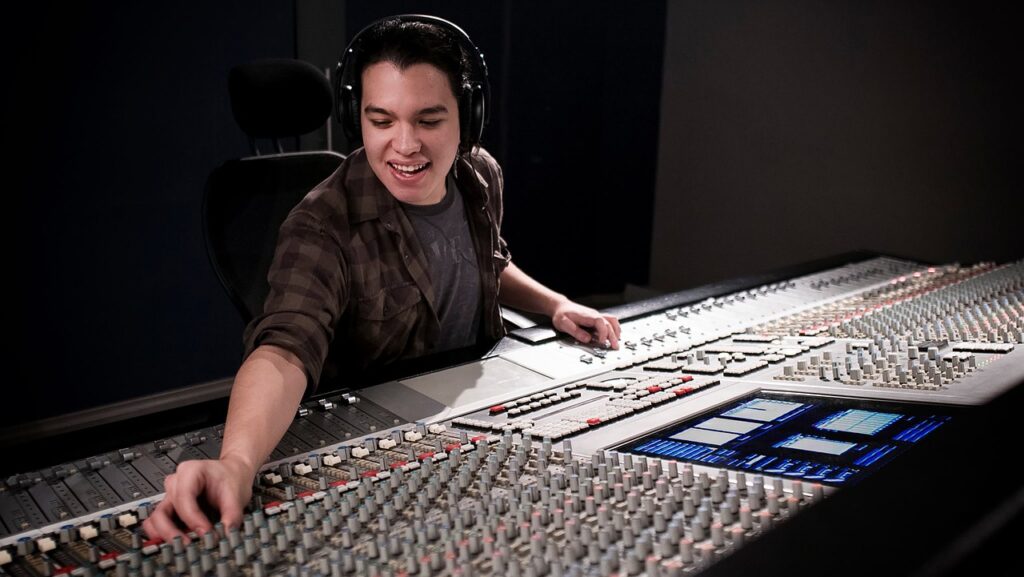What Is The Role Of A Sound Engineer?

A sound engineer takes care of the mechanics of sound. For those with an ear for music and a love of technology, a sound engineer may be the perfect career choice.
The role of a sound engineer
There are roles for sound engineers in both live and recorded music, and you would generally specialise in one particular field:
- Front-of-house mixing for live concerts or theatre audiences.
- Monitor live sound audio that the performer listens to on a monitor
- Computer and video gaming sound management
- Live events, such as sports games, music concerts, conferences and ceremonies
- Radio or TV broadcasts
- Studio recording for TV, film or music
Sound engineers’ responsibilities may vary depending on the environment they choose and the size of the team. For smaller projects, the sound engineer may also be involved with mixing, editing, and the technician’s role to capture and enhance the sound. However, for larger projects, positions may be split. You will get opportunities to use PA and sound systems such as those offered by Sound Services for events, functions, weddings and performances.
What responsibilities does a sound engineer have
Key responsibilities include:
- Communicating with directors and producers
- Placing and programming speakers and amplifiers
- Leading sound checks
- Studio equipment testing
- Monitoring instrument and sound volumes
- Individual element recording
- Mixing to balance audio levels
- Repairing defects with equipment
- Track combining and editing
Skills required
Successful sound engineers combine creativity with collaboration bringing to life the goals and creative vision of directors, producers and performers. It is essential to be able to listen, interpret and to be able to offer and accept feedback as you work to understand and bring to life the vision for the performance or recording.
Creative strength is also an asset, where creative arts skills, such as design and filmmaking, can be used to complement the narrative and visual components of a performance or production. You may have opportunities to present ideas to strengthen the sound contribution to the overall performance and bring your unique ideas for creating the required sound effects or using instruments.
Sound engineers should be familiar with different types of sound equipment, and keeping up with the latest technology is essential. As you could find yourself responsible for setting up and removing the equipment for the event and managing and troubleshooting, you should know how to handle each stage or be able to instruct others to do so.
Attention to detail is required as sound engineers must be tuned into the small changes in sound, volume or pitch through careful analytical listening and be able to find creative solutions to issues.
A sound engineer is a perfect career for individuals who have a technical understanding within their musical ear. The ability to read sheet music is a boost for working in live theatre or performances and concerts to keep up with the musical score during the performance.
Routes to a role as a sound engineer
Look for entry-level roles, such as audio technician. This can help you get in front of the right people, give you a chance to learn how to set up equipment, manage microphones and troubleshoot issues, as you will likely get to work alongside a sound engineer where you can observe recording environments and get closer to a wide range of sound equipment. You will gain the practical background to support the creative skills required for the advanced role of sound engineer.
Identifying a niche will help you refine and develop more specific industry skills and gain connections. The industry is widespread, so focusing on a particular niche will help you direct your search. Consider your other personal interests. If you love to travel, working with a touring artist or production may suit you. If you want to create studio albums by supporting the artist’s recording, you can focus your work experience differently.





